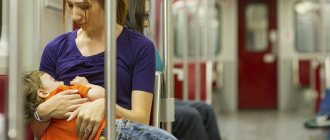Student rights at school have recently been actively discussed in various media. Any citizen of Russia has rights that must be strictly observed. Children are no exception; they are protected by law.
The rules on the protection of children's rights at school are reflected in various legal documents.
The right of the child: to study at the expense of the state
Regulatory framework: ,
Free education can be obtained in state and municipal organizations (not in private ones). Everyone can receive preschool, basic and secondary vocational education at the expense of budget money. In other words, education in kindergartens, schools and colleges is free. But only study. The maintenance of the child in the kindergarten is all paid for by the parents.
What does “study” include? Textbooks, manuals, maps, workbooks and toys - all this should be free and accessible to every child. For the needs of a classroom or kindergarten, for gifts, blinds, curtains, equipment, security, landscaping - parents donate voluntarily. Nobody has the right to demand this.
For now, the first higher education can also be obtained free of charge, but only based on the results of a competitive selection. If you don’t pass the competition, you won’t be given a budget place.
The second higher education is at your own expense.
Mobile phones are not for studying
Rospotrebnadzor has approved new requirements for the operation of schools, kindergartens, camps and other children's institutions. New sanitary rules SP 2.4. 3648-20 will be in effect from January 1, 2021 to January 1, 2027.
The document describes in detail many aspects of school life. Thus, classes should begin no earlier than 8 a.m. Conducting “zero” lessons and training in three shifts is not allowed. Second shift classes must end no later than 19:00. The duration of breaks between lessons is at least 10 minutes. After the second or third lesson there should be a long break - 20-30 minutes. (Two big changes can be made.) It is especially emphasized that the organization of specialized education in grades 10-11 should not lead to an increase in workload.
RG experts explain the legal aspects of education in the “Legal Consultation” section
In addition, sanitary rules establish requirements for the educational process using electronic learning tools. For example, the diagonal of an interactive whiteboard must be at least 165.1 cm. The minimum diagonal for a computer or laptop monitor is at least 39.6 cm, for a tablet - 26.6 cm. The use of monitors based on cathode ray tubes in educational organizations is not allowed .
The total duration of using electronic learning tools in a lesson should not exceed 35 minutes.
Also, when organizing the work of schools, physical education sessions, eye exercises, and monitoring of children’s posture are provided, including while writing, drawing, and using electronic means.
A very important point concerns the use of mobile phones for education: “Mobile communications are not used for educational purposes.” Why? Rospotrebnadzor answered this question to Rossiyskaya Gazeta
“Mobile communications devices most often have a small screen size, this entails visual strain and poor posture, so mobile phones cannot be used during a lesson instead of a computer or tablet,” the department’s press service told RG.
What else is specified in the new sanpins? In elementary school, when using a laptop, you need to use an additional keyboard. When using electronic learning tools, the workplace must provide the child with a visual distance to the screen of at least 50 cm. Tablets must be placed on tables with an inclination of 30 degrees. Headphones can be used continuously for no more than an hour: volume - no more than 60% of maximum. Electronic equipment must be disinfected daily.
“When implementing educational programs using distance learning technologies and e-learning, the class schedule is drawn up taking into account the daily and weekly dynamics of students’ mental performance and the difficulty of academic subjects,” the document says. — Training must end no later than 18.00. The duration of the lesson should not exceed 40 minutes.
The right of the child: to study in the place of residence
Regulatory framework: ,
Parents can choose a garden near home or near work. The only important thing is that the institution is located in the same municipality where the child lives. For schools, we have a territorial principle: for each school there are designated houses that belong to it. Children who live in them have the right to enter the first grade at this particular school.
They are accepted into kindergarten without competition, but you have to wait your turn. It is also not possible to hold a competition or any other selection for first-graders. This is only possible for middle and senior management.
Only schools, lyceums and gymnasiums with in-depth or specialized study of subjects can accept the competition. This rule is regulated by the legislation of the constituent entities of the Russian Federation, so things may vary by region. Note! Next to such a specialized institution there must be an alternative regular school where you can enter without competition.
What is prohibited for a student when he is at school?
The ideal situation is when teachers and students respect their responsibilities and respect each other's rights. But this is not always achieved. There is a list of actions carried out by students that are unacceptable:
- bringing dangerous objects to school - weapons, chemicals, etc.;
- provoking conflicts, participating in fights;
- skipping classes without a good reason;
- is intoxicated at school;
- smoking on school grounds;
- theft and causing damage to third parties.
Read also: How to pass a polygraph?
Rude communication with teachers and employees of the institution is also unacceptable. A common form of punishment for such an offense is to call parents to school.
Attention! If a child behaves uncontrollably, breaks school property, and so on, the teacher has the right to contact medical personnel and security, call parents and law enforcement agencies.
The child’s right: to choose a school, form of education and language
Regulatory framework:
They do not have the right to impose any particular school on a child. He and his parents can decide for themselves which educational institution, with what specialization and in which region to choose. But taking into account the recommendations of the medical-pedagogical commission, if it is required for medical reasons.
By law, you have the right to choose any school - not necessarily at your place of residence. Please note that a child may not be accepted if there are no places available. First of all, children with registration and beneficiaries are enrolled.
Vitamins and therapeutic nutrition
New SanPiNs 2.3/2.4.3590-20 for the organization of public catering have been approved. They will be in effect from January 1, 2021 until January 1, 2027. The document touches on many areas. But one of its most important sections is devoted to the peculiarities of organizing public catering for children. That is, in schools, kindergartens, children's camps, etc. Food here should be healthy, nutritious, and take into account the characteristics of the region.
What's new in it compared to the old documents? The menu should include foods enriched with vitamins and microelements, as well as fortified drinks. Replacing the fortification of dishes with the provision of multivitamin preparations to children is not allowed. When preparing dishes, you should not use regular salt, but iodized salt.
The menu can be adjusted taking into account climatic-geographical, national, religious and territorial characteristics. And for children in need of therapeutic and dietary nutrition, individual menus will be developed.
An important new rule concerns home-cooked meals: “Children are allowed to eat home-cooked meals provided by the children’s parents in the dining room or specially designated areas equipped with tables and chairs, refrigerators, microwave ovens, and hand-washing facilities.”
Interestingly? Children are only allowed to be given dry rations during trips or events lasting up to four hours. Over four hours - hot meals must be provided. When holding mass events lasting more than 2 hours, each child must be provided with additional commercially produced bottled drinking (non-carbonated) water, the daily supply of which during the event must be at least 1.5 liters per child.
At the same time, schools will be allowed to install vending machines (devices for automatically dispensing food products). True, only healthy food will be sold there.
In addition, the list of products that are not allowed for catering in schools is still preserved. For example, cakes and pastries, mushrooms, mayonnaise, coffee, chewing gum, caramel, potato and corn chips will be prohibited (specifically for organized meals). And this is not a complete list.
The right of the child: to refuse electives and competitions
Regulatory framework:
Each school has an educational program in which children are taught and with which parents have the right to become acquainted. For parents it is free; the state pays for everything that is necessary to master this program. Moreover, according to the law, any school can - with prices approved by the local administration. The list and cost of services must be publicly available: officially published on the school website.
Sometimes children and parents are forced to take additional classes in certain subjects or study outside the school curriculum. They also hold Olympiads, where you have to pay for participation and forms. All paid classes, services, electives and competitions are only voluntary and with your consent.
Show me the thermometer
Temperature measurement, hand sanitizers, cancellation of public events - all these and other sanitary measures will remain in schools for another year. According to the decree of the Chief State Sanitary Doctor of the Russian Federation, the requirements for the operation of schools, camps and other children's organizations in the context of COVID-19 are extended until 2022. Each class must be assigned a separate classroom in which children are taught in all subjects. An exception is classes that require special equipment (physical education, fine arts, labor training, technology, physics, chemistry).
Schools operate according to a special schedule of lessons and breaks, designed to minimize student contact. The main thing is that teachers come to children’s classrooms, and not vice versa. Ventilation of corridors should be carried out during lessons, and classrooms during breaks. Another important point is exams and certification: a student attendance schedule is drawn up, a social distance of 1.5 m is maintained, and zigzag seating is arranged per person per desk. Both children and adults with signs of respiratory illness should be isolated until the ambulance arrives or until the parents arrive. What is important? Absolutely all of these measures apply to face-to-face education. They are already operating in Russian schools. Compliance with these rules allows you to study full-time, minimizing health risks.
Responsibilities
From a certain age, a child is also obliged to do something for the benefit of society and his family. This begins from the moment the child turns 6 years old. At this age, children are required to receive basic general education. They must obey their parents and follow the rules of behavior established in educational institutions, at home and in public places.
From their 14th birthday, the responsibilities of teenagers in Russia expand: they must comply with the charter of an educational institution or public association. If a teenager works, comply with labor legislation, the contract and the terms of the employment contract.
Upon reaching the age of 17, young men are required to register with the military.
List of rights
The right of a minor to education is a general concept. It consists of a whole complex of interests protected by law. Among them:
- the selection of an educational organization can be carried out both on a territorial basis and according to the child’s preference;
- schooling should be provided free of charge;
- a change of educational institution is possible at any time, but with the consent of the minor and his legal representatives;
- the learning process must be safe;
- a child can engage in creativity or art as part of additional education;
- the teacher must convey knowledge in the subjects to students;
- equality of all students before teachers;
- respect for the personality of a minor;
- participation in improvement events (optional);
- obtaining educational materials;
- help from a psychologist (if there is a rate);
- the opportunity to gain knowledge in accordance with abilities (externship) and health status (children with organic abilities and disabled people).
Some rights of a child at school must be ensured by the educational organization without fail, for example, respect for the individual or equal treatment of all students by the teacher. Others - with the participation of legal representatives (change of educational institution or transfer to a special training program).
New procedure for implementing educational programs
From January 1, 2021, the order of the Ministry of Education “On approval of the Procedure for organizing and implementing educational activities in basic general education programs” comes into force.
It stipulates that various educational technologies are used in the implementation of general education programs, including distance educational technologies and e-learning. And in the event of the threat of certain emergency situations, the introduction of a high alert or emergency regime, the implementation of educational programs is carried out using e-learning, distance learning technologies, regardless of the restrictions provided for in federal state educational standards, if the implementation of these educational programs without the use of these technologies or the deadlines are postponed training is impossible.
And then, on January 1, an order amending this document comes into force. It states that the educational program includes, inter alia, a working educational program and a calendar plan for educational work.
What should parents do?
If the rights of children at school are violated by teachers, legal representatives must take measures to restore them. If physical violence is used against a minor, you must act as follows:
- contact the police department;
- to write an application;
- obtain a medical report regarding injuries;
- make a copy of the certificate;
- Attach original documents to the application;
- contact the head of the educational organization to protect the child from the teacher.
One of the options for violence against students may be involvement in activities that are dangerous for the child.
For example, a physical education teacher forces a minor who has suffered an illness to take lessons. If health conditions worsen or a new injury occurs, parents should contact the authorized authorities (police, prosecutor's office). Less significant issues can be raised during a parent-teacher meeting. The opportunity to complain and find like-minded people among other parents in the class can help resolve a conflict situation.
Violations and liability
Russians become familiar with the concept of responsibility from a very young age: they begin to answer to their parents or other persons who are responsible for them. Older children not only have rights and responsibilities, they also have the responsibilities of minors. It begins in adolescence.
From the age of 11, they risk being placed in special closed educational institutions for children and adolescents who are not yet subject to criminal liability. These are called juvenile detention centers.
From the age of 14, teenagers themselves are responsible for the transactions concluded and must themselves compensate for the damage caused. For particularly serious crimes they face criminal punishment. This does not mean that minors under 14 do not have the responsibility to obey the law. It is the same for everyone.
From the age of 16 - criminal prosecution for all crimes. At the same age, administrative responsibility begins.
Rights of children at different ages
The main regulatory act devoted to this topic is the Family Code of the Russian Federation. There are other laws regarding the rights of minors. Here are the laws that regulate the rights and obligations of minors in Russia:
- Constitution of the Russian Federation;
- Civil Code of Russia;
- Labor Code of the Russian Federation;
- Federal Law No. 273 “On Education in the Russian Federation”;
- Federal Law No. 159 “On additional guarantees for social support for orphans and children left without parental care”;
- Federal Law No. 124 “On Basic Guarantees of the Rights of the Child in the Russian Federation”;
- Federal Law No. 49 “On Guardianship and Trusteeship”.
All children in Russia have the opportunity to:
- grow up in a family;
- to be brought up by their parents, and in their absence, by guardians, trustees, and, in extreme cases, by specialized children's institutions;
- know who his parents are;
- live with biological parents and receive proper care from them. The only exception is if this is contrary to the interests of the child and, moreover, puts his health and life at risk;
- communicate with blood relatives;
- enjoy the right to respect;
- receive comprehensive development;
- receive protection;
- Express ones opinion;
- have a surname, name and patronymic, and if desired, change them;
- be provided with the means to live. This also includes the right to personal income.
All the rights and obligations of minors in the Russian Federation are described in detail in Chapter 11 of the Family Code of Russia. The child receives all these opportunities from birth.
From the age of 6, he also receives the right to:
- small household transactions;
- visiting school;
- independent management of pocket money;
- receiving gifts.
From the age of 8, the opportunity to participate in a children's public association is added.
From the age of 10, they are given the freedom to give consent to the restoration of parental rights to their natural parents (Article 72 of the Family Code of Russia), to adoption or transfer to a foster family (Article 132 of the Family Code of Russia). From this age, his opinion on all family issues that affect his life is taken into account. And he gets the opportunity to be heard during administrative or judicial proceedings.
From the age of 14, citizens have the right:
- go to court on your own;
- receive passports;
- work with the consent of one of the parents for no longer than 4 hours during free time from school;
- open bank deposits.
After your 16th birthday you have the opportunity to:
- work up to 36 hours a week;
- study for a driver's license;
- under special circumstances - to marry;
- undergo the emancipation procedure: gain full legal capacity.
A child’s opportunities become more and more as time goes on. This is what the rights and responsibilities of a teenager are for:
- smoothly prepare him for adult life;
- learn to cope first with a small circle of obligations and freedoms, then expanding it;
- ensure safety and good living conditions;
- guarantee education;
- give him the right to independently regulate certain aspects of his life.






